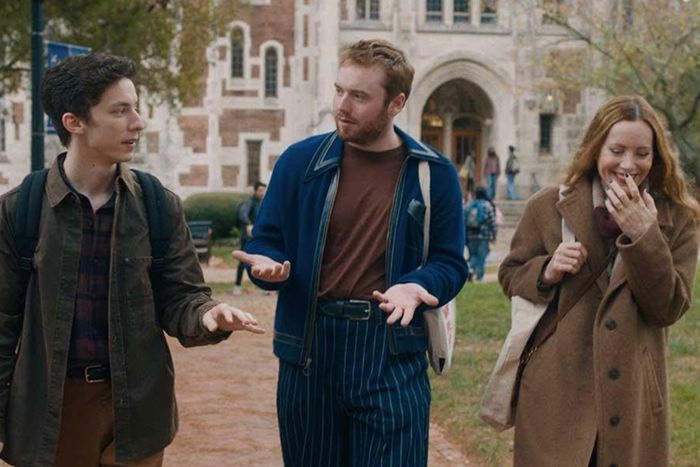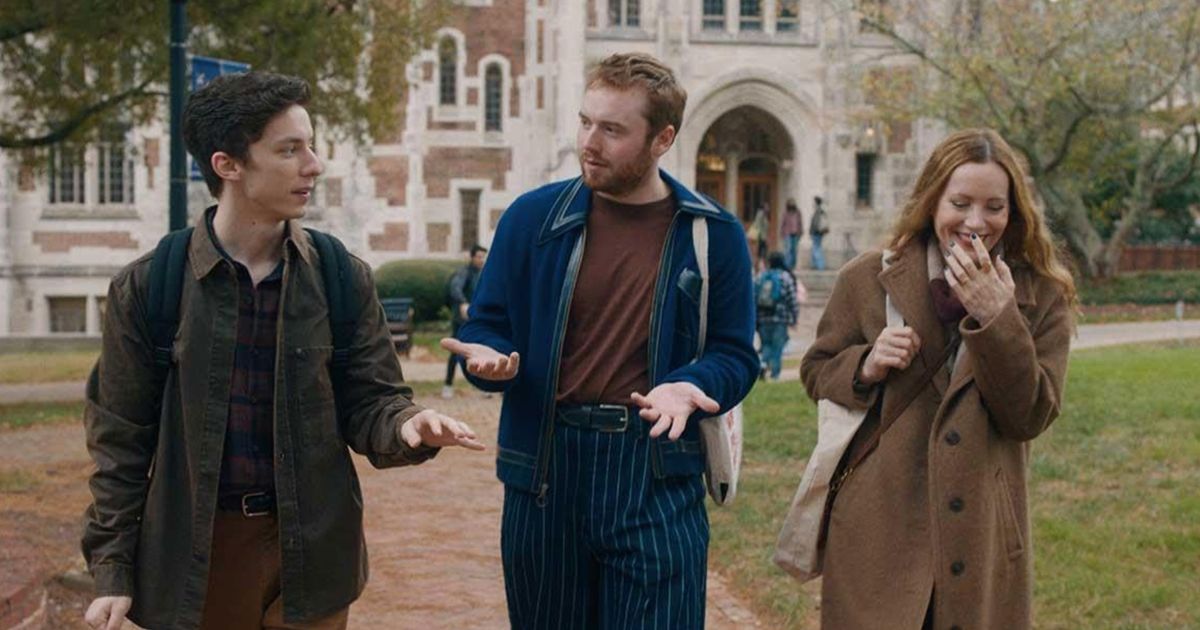
In Poetic License, Hoffman is like a Gen-Z Vince Vaughn, bullshitting sophistication at a mile a minute, but also too sensitive for this world.
Photo: Toronto International Film Festival
There’s an early scene in Poetic License, Maude Apatow’s directorial debut, which premiered at the Toronto International Film Festival over the weekend, in which an idiosyncratic college senior with family money, played by Cooper Hoffman, floats the idea of creating a LinkedIn account. His best friend, a comparatively buttoned-up economics student named Sam (Andrew Barth Feldman), asks Hoffman’s Ari what he would write on it. Ari chews on the question for a beat, a quizzical expression on his face as it morphs subtly from curiosity to bafflement to worry to contentment. Finally, he retracts his flight of fancy: “Never mind.” There aren’t many actors doing intense character work between the setup and punch line of a joke. In Poetic License, Hoffman establishes himself as one of them.
Poetic License is a movie about transition. By coincidence or otherwise, it comes from the Apatow school of zooming in on characters at major turning points in their lives (Apatow’s father, Judd, is a producer, and her mother, Leslie Mann, co-stars in the movie). Ari is aimless and has made the executive decision to wean himself off his antidepressants; Sam is tortured by the prospect of going straight from college into a boring and unfulfilling career at Morgan Stanley. Everyone around them is in transition, too. The boys become enamored with Liz (Mann) in a poetry class at their college, which she’s auditing to cope with the fact that her daughter, Dora (Nico Parker), is about to move away after high school. Their professor, Greta (Martha Kelly), is going through a messy divorce. They all turn in stellar work — particularly Mann, who finally gets the role befitting her talents that Judd has been trying to write for years. All of which makes Hoffman’s standout performance all the more impressive.
Some of this is owing to the script, courtesy of first-time screenwriter Raffi Donatich. The dialogue crackles with witty, fast-paced rapport, and Hoffman gets many of the best individual lines. At one point, upon seeing Liz pull out of the school’s parking lot, he turns to Sam and remarks, “I love a woman who can drive.” When Sam points out that that isn’t an identifiable archetype, he hits back, “It is if you’re from New York.” But Hoffman also imbues the character with an innocent, slippery charisma. He’s Gen-Z Vince Vaughn, bullshitting sophistication at a mile a minute, but also too sensitive for this world. In an early conversation with Liz, she remarks that Sam and Ari have a special connection, and he says with precocious gratitude, “You’re so perceptive of what we have.” He punctuates line deliveries by flashing his eyes and curling his face into endearing half-smiles, which grow more manic as the movie progresses and his medication wears off.
About halfway through the film, Ari and Liz talk about his decision to stop taking his antidepressants. Liz asks him why he thinks it’s safe to do, and Ari replies that he’s unconcerned because the medications are diminishing his “sparkle.” It’s supposed to be a ludicrous argument: How could anything diminish this guy’s sparkle? a viewer might think. It’s a credit to Hoffman that that comes across.

